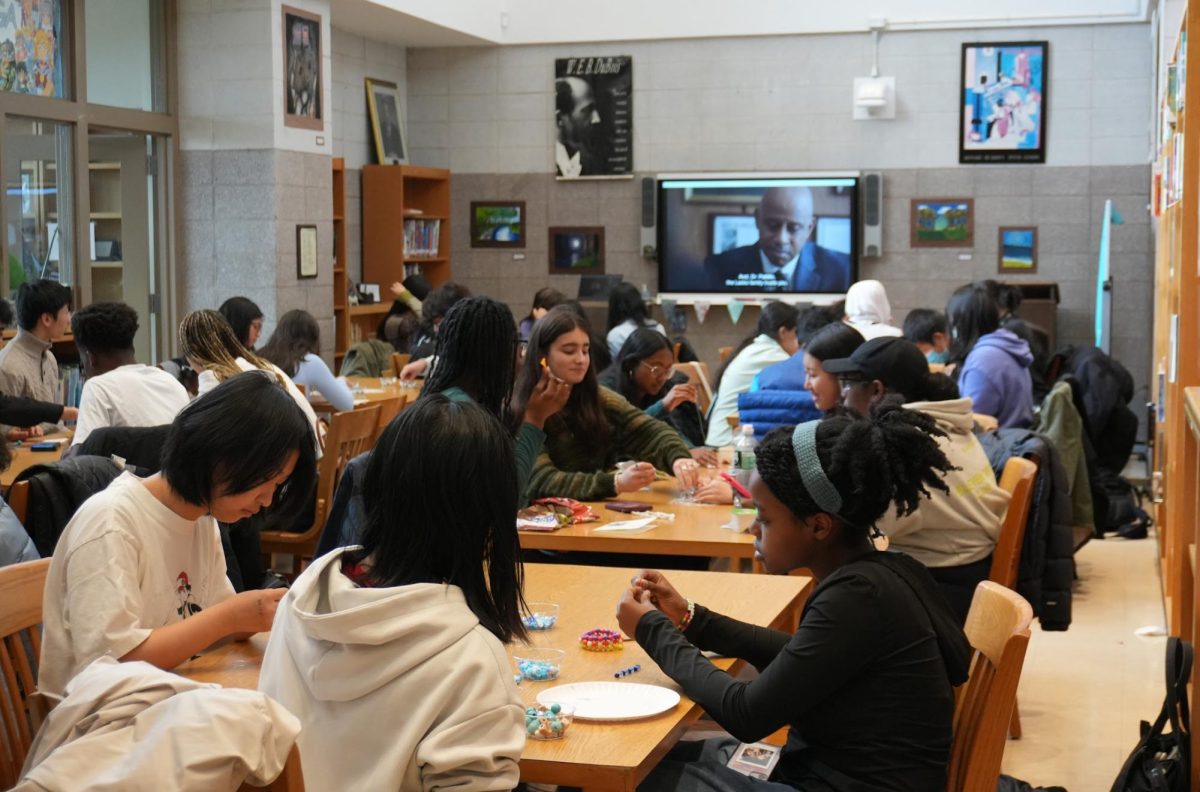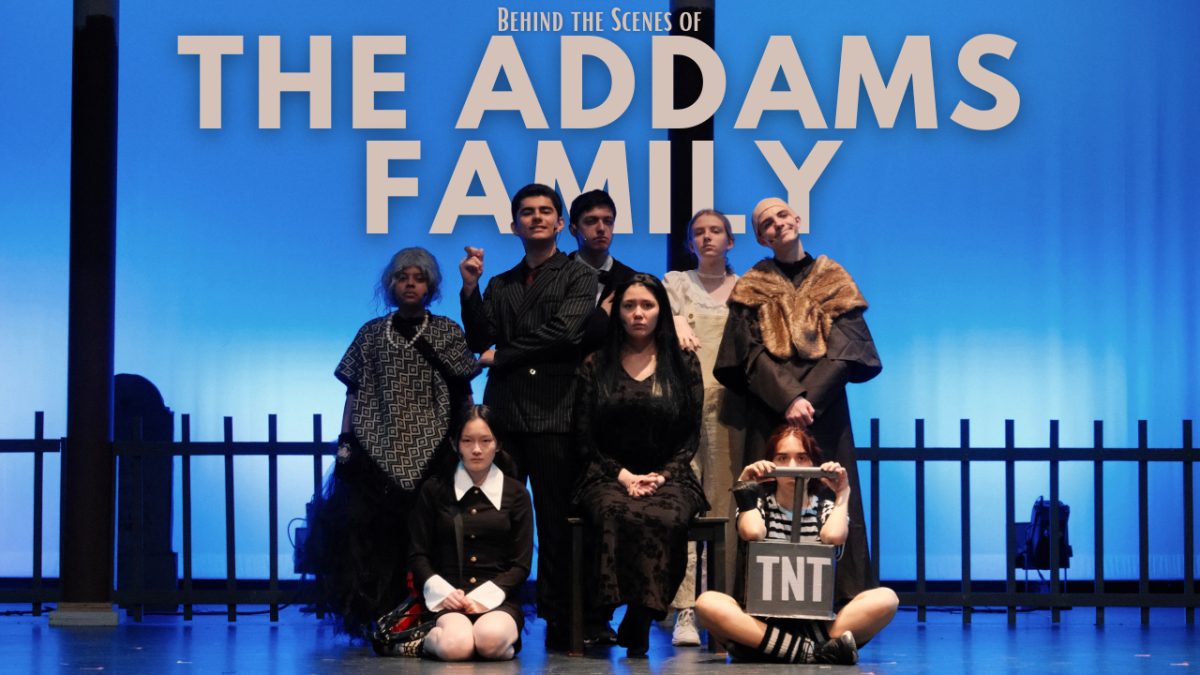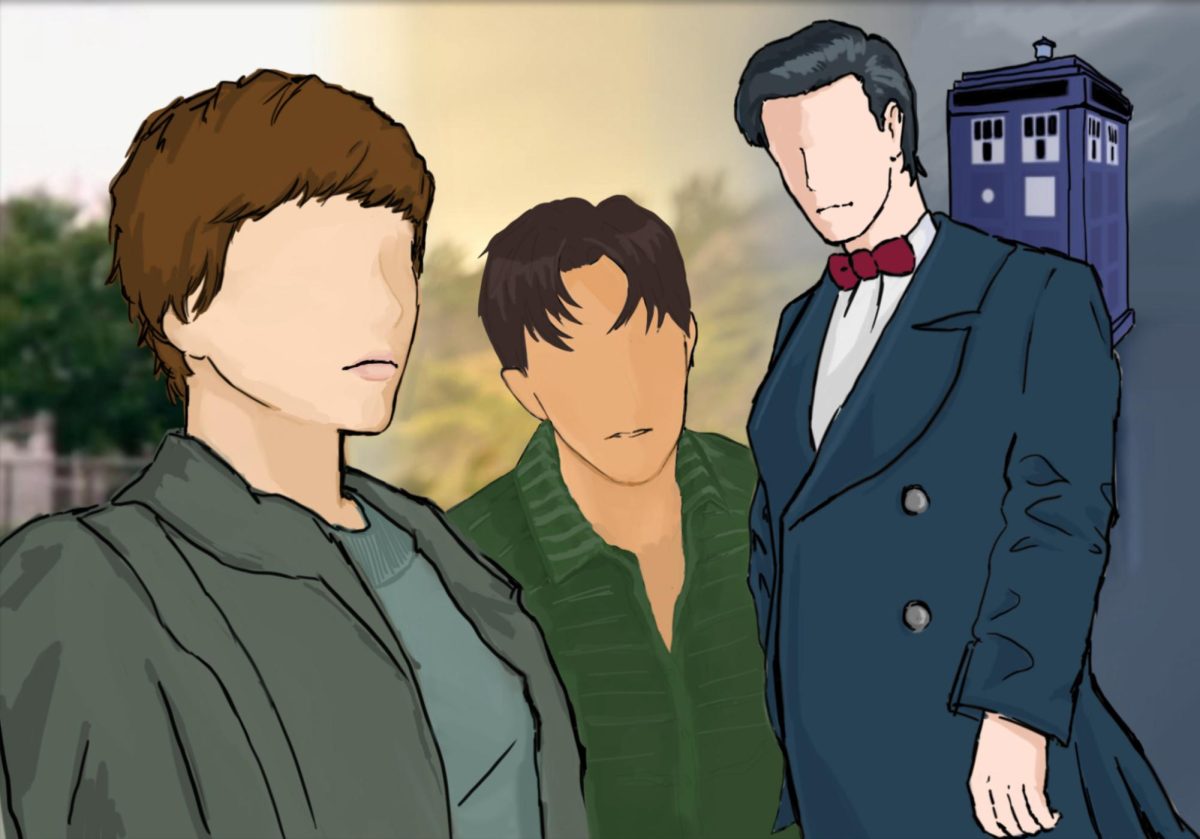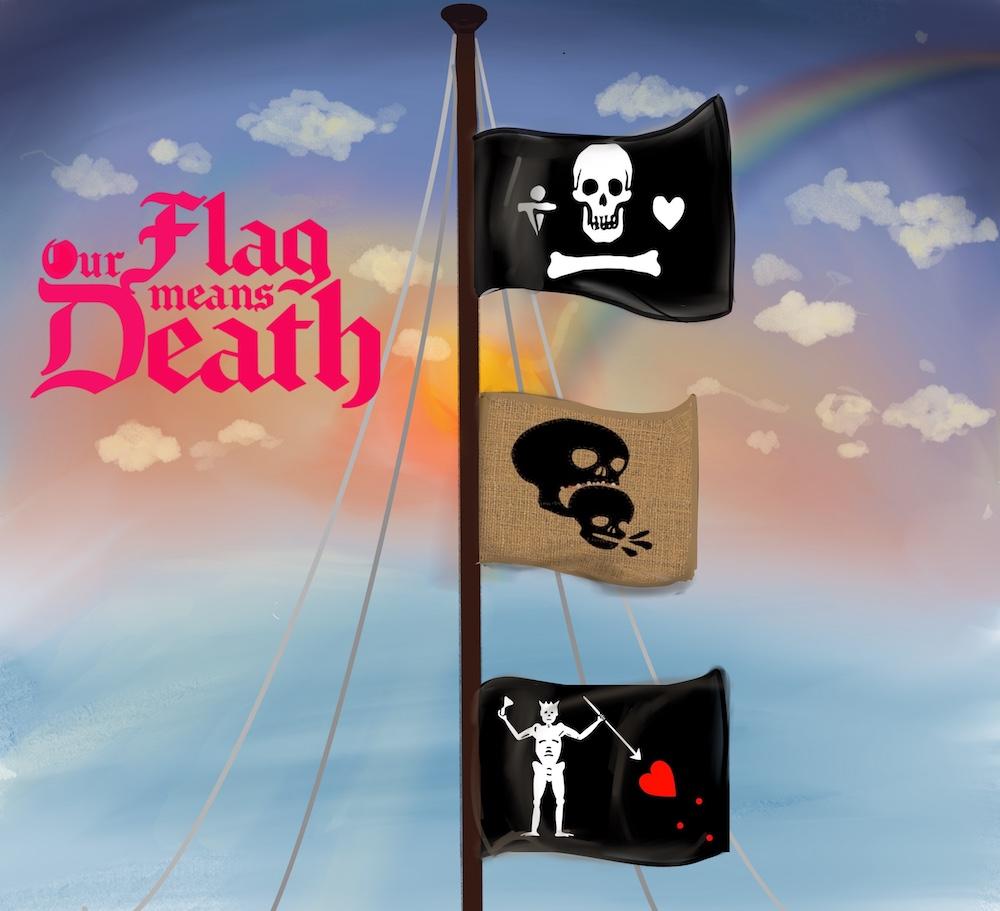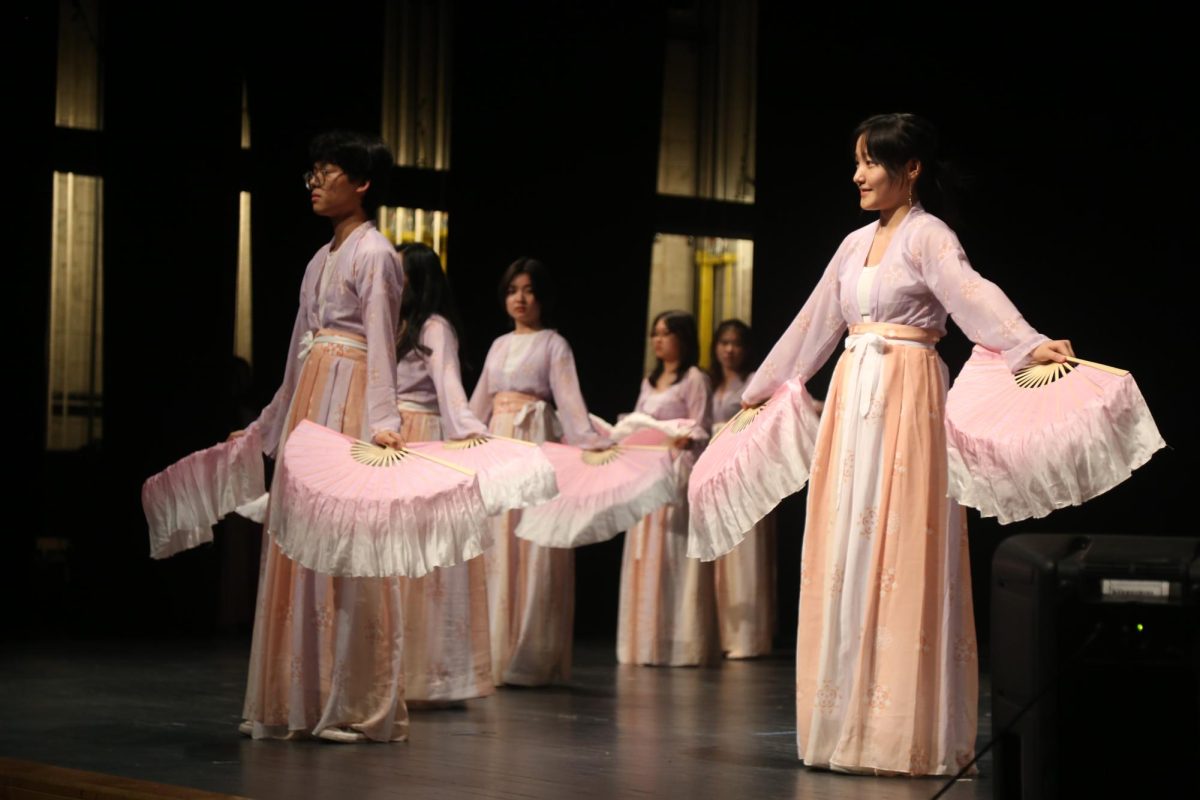
Our Flag Means Death features the creative duo Taika Waititi and Rhys Darby taking on a new comical, light, unexpected and LGBTQ+ friendly HBO series. Based on the true story of an eighteenth century English nobleman, Stede Bonnet (Rhys Darby) abandons his aristocratic lifestyle to become a famous pirate. Later in his disastrous travels, however, the legendary pirate Blackbeard (Taika Waititi) takes an interest in Stede and they become unlikely friends. The humor, while not noticeably outstanding, has a unique sense to it that relies on the audience’s love for the colorful cast of characters. What has garnered the series attention, aside from its comedic historical premise, is its inclusion of LGBTQ+ characters in the main cast. This includes a non-binary supporting cast member, Jim (Vico Ortiz), as well as Stede and Blackbeard.
Stede, a very stereotypically wealthy, privileged, and sheltered middle aged man, commands a ragtag pirate crew with a unique philosophy of kindness. Unable to stomach violence from a young age, he prefers to provide generously for his crew as a sort of quasi-parental figure, though he is terribly inefficient at actual pirating. After Stede’s old primary-school bully (Rory Kinnear), now a captain in the British navy, encounters and boards their ship, chaos ensues. This eventually leads to Stede’s (semi) accidental murder of the captain, an event which proceeds to haunt him due to his aversion to killing. As a result, however, he is launched into the reality of being a pirate, and from then on the crew’s antics continue. Stede’s crew, all well aware of his inability to actually be a pirate, are also somewhat idiotic themselves and thus also contribute to their own misfortune. The most interesting members of the crew are Oluwande (Samson Kayo) and Jim, both on the run and the latter disguised as a man. However, all of the crew members, including those with goofier names like Buttons (Ewen Bremner) or Roach (Samba Schutte), are somewhat memorable and enjoyable to watch. Though not explored in considerable depth as of yet, promise remains for the expected later seasons to flesh out these supporting characters.
The humor relies primarily on ridiculous Monty Python-esque scenarios and the sheer presence of the main character Stede Bonnet. Indeed, Stede’s “gentlemen pirate” persona has a charm as well as a cringe-worthy goofiness to it. Stede, though a soft person and one very attached to his material aristocratic tastes, later reveals a more complex side. Not only does he leave his family due to his own discontent, but he also seems unwilling to accept that he was originally just a fool frivolously spending his money for adventure. Though he feels guilt for leaving his family, especially his children, he is still committed to a somewhat childish dream of becoming a pirate in order to escape his nobleman life. His most endearing yet simultaneously annoying moments are when he is most unaware of his own embarrassing behavior or simply does not care what others think of him. The crew members balance this by advising him at important moments and at points being openly critical of him. His ridiculously posh wardrobe and attitude, contrasted with the world he has submerged himself in, implies that he is a little bit out of touch with reality. Yet, his lighter attitude towards participating in a criminal line of work fits with the overall narrative, ripe with intentional cliches that enhance the comedy.
When things become more serious for Stede and his crew as they are nearly betrayed and killed, a turning point begins to emerge in his arc. This was primarily due to the introduction of Blackbeard who saves them at the last moment and settles for a time aboard their ship. Blackbeard, tired of his life as a legendary criminal, is fascinated by Stede’s aristocratic tastes and impracticalities as they are something “different” and “fun.” This very innocent, silly reasoning that runs both ways for the two is endearing.
Most importantly, the queer characters are not the butt of jokes because of their identities, rather their highly disparate, eccentric personalities are the center of the humor. This is especially true of Stede and Blackbeard, who are amusing because of their ignorance and childish fascination with the other’s lifestyle, not because they are not straight. Being gay is not implicitly associated with the failures these men have experienced nor their (somewhat significant) character flaws. Instead, their meeting is what helps them begin to find a way through their somewhat dramatic version of a midlife crisis.
The show tackles masculinity in the context of the literary concepts of pirates and gentlemen, meaning that Blackbeard, a more masculine character, being gay defies older conventions about, as director David Jenkins stated, “what it means to be a man.” Blackbeard and Stede themselves are also very enjoyable on screen together, with decent chemistry and a stronger presence in the plot than Stede alone.
The humor of the show overall, however, can be hit-or-miss. The crew members, though enjoyable, don’t rouse many hardy laughs. The show shines most in terms of its humor in its subtle criticism of the European wealthy. Beyond the overt clichés seen with Stede himself, the show features naval officers and aristocrats from Britain, France, and Spain. The narrative deliberately pokes fun at the uptight, rude nature of some of these characters, especially contrasting them with the more innocent and endearing nature of some of the crew members. There are references to racist comments and colonization such as in episode three, where light-skinned (European) visitors are captured on an island and are put on trial by its indigenous population. In this way, a pirate ship is ironically far more tolerant and diverse than the historical Europeans being robbed by them.
Even after being discovered as a woman in disguise, Jim makes it clear to the crew that they would still prefer to be called Jim, even as they present more openly as a biological female. None of the crew takes an issue with this.
This is a show that does not take itself too seriously, but still portrays many significant, real-world themes. The last episode of season 1, aired on March 24, canonized the romantic relationship between Blackbeard and Stede, much to the surprise of fans. Seeing respectful LGBTQ+ representation in a comedy show especially is heartwarming. But regardless of how one identifies, this show is worth a watch particularly for those who enjoy ensemble cast or outlandishly comedic adventures.
Artwork by Amelia Harrington







